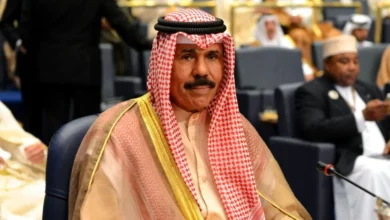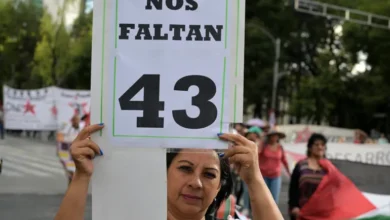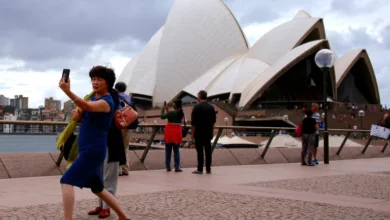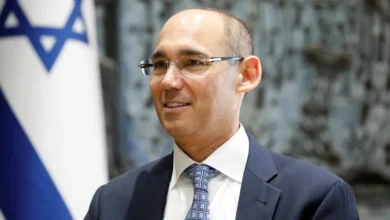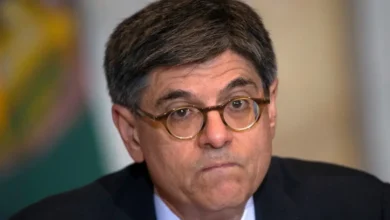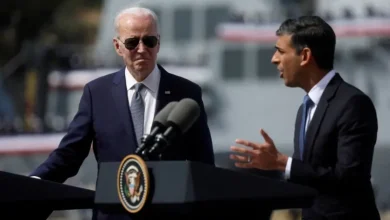King Charles in Kenya as calls for colonial apology grow
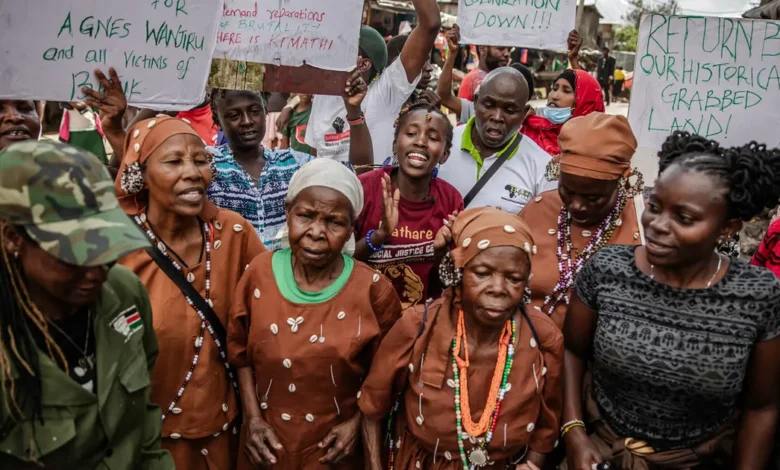
Britain’s King Charles III arrived in Kenya late Monday for his first visit as monarch to a Commonwealth nation, where he faces widespread calls for an apology for abuses committed during colonial rule.
The palace says Charles, who is travelling with Queen Camilla, is expected to tackle “the more painful aspects” of Britain’s historic relationship with Kenya during the four-day state visit.
This will include the so-called “Emergency” of 1952-1960, when colonial authorities imposed a state of emergency in response to the Mau Mau guerrilla uprising against European settlers.
About 10,000 people, mainly from the Kikuyu tribe, were killed during the crackdown.
“The visit comes as Kenya prepares to celebrate 60 years of independence and will spotlight the strong and dynamic partnership between the UK and Kenya,” the British High Commission in Nairobi said in a statement announcing the royal couple’s arrival.
The choice of Kenya for his first visit to a Commonwealth nation since becoming king in September last year has special resonance for the royal family.
It was there in 1952 that Charles’s mother, the late Queen Elizabeth II, learned of the death of her father, King George VI, marking the start of her historic 70-year reign.
Charles and Camilla officially kick off the visit on Tuesday when they will be welcomed by Kenyan President William Ruto.
During two days in the capital Nairobi, Charles will meet entrepreneurs, young Kenyans and participate in a state banquet.
He will also visit a new museum dedicated to the East African nation’s history and lay a wreath at the Tomb of the Unknown Warrior in Uhuru Gardens, where Kenya declared independence in December 1963.
The king and queen will then travel to the Indian Ocean port city of Mombasa, where they will visit a nature reserve and meet representatives of various religions.
‘Unequivocal apology’
Although Kenya’s government has said talks will focus on environmental issues, technology, innovation, and women’s empowerment, demands for an apology have dominated public discourse in recent days.
On Sunday, the Kenya Human Rights Commission urged Charles to make an “unequivocal public apology” and pay reparations for abuses committed by colonial authorities.
“We call upon the King on behalf of the British government to issue an unconditional and unequivocal public apology (as opposed to the very cautious, self-preserving and protective statements of regrets) for the brutal and inhuman treatment inflicted on Kenyan citizens,” it said.
According to Buckingham Palace, Charles “will take time during the visit to deepen his understanding of the wrongs suffered in this period by the people of Kenya”.
Following a years-long court battle, Britain agreed in 2013 to compensate more than 5,000 Kenyans who had suffered abuse during the Mau Mau revolt, in a deal worth nearly 20 million pounds ($25 million at today’s rates).
Each claimant received around 2,600 pounds after legal costs were deducted.
At the time, then foreign secretary William Hague said Britain “sincerely regrets” the abuses but stopped short of a full apology.
‘Save the Commonwealth’
Another lingering source of tension is the presence of British troops in Kenya.
In August, Kenya’s parliament launched an inquiry into the activities of the British army, which has a base on the outskirts of Nanyuki, a town about 200 kilometers (120 miles) north of Nairobi.
Charles will not be going to Nanyuki during this trip, his fourth to Kenya.
Britain’s Daily Mail newspaper has billed Kenya as “the first stop” on Charles’s “mission to save the Commonwealth”.
More than a dozen nations out of the Commonwealth grouping of 56 countries still recognize the UK monarch as head of state.
But clamor to become a republic is growing among some, including Jamaica and Belize, with Barbados making the switch in 2021.
“The late Queen was very much connected to the Commonwealth,” said Poppy Cullen, African history lecturer at the University of Cambridge.
“And I imagine that the British government will be keen that the king sort of does something similar to try and raise its profile or keep it together.”
The royal trip comes 40 years after Elizabeth’s state visit to Kenya in November 1983.
